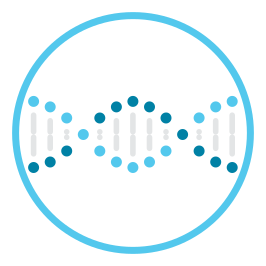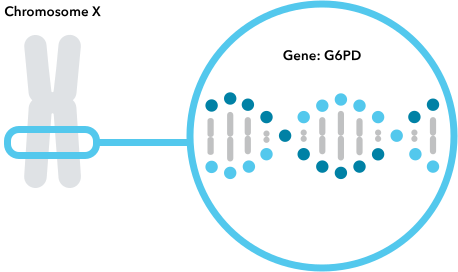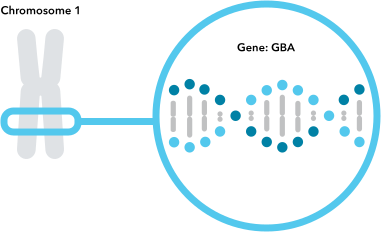23andMeLet's Talk about Genetics
Welcome to the 23andMe Genetics Learning Hub. Discover how genetics - as well as environmental, lifestyle, and other factors - can impact your likelihood of developing certain health conditions or having certain traits.
Showing 6 of 82

Are Homocysteine Levels Genetic?
Learn more about the causes of elevated homocysteine levels, and how the MTHFR gene can impact your...
Read more - about Are Homocysteine Levels Genetic?
Is Osteoporosis Genetic?
Learn more about the causes of osteoporosis, and how genetics can impact your likelihood of...
Read more - about Is Osteoporosis Genetic?
Emotional Eating
Learn more about how genetics can impact your likelihood of frequent emotional eating.
Read more - about Emotional Eating
Is Parkinson’s Disease Genetic?
Learn more about what causes Parkinson's Disease and what your DNA can tell you about your...
Read more - about Is Parkinson’s Disease Genetic?
Is G6PD Deficiency Genetic?
Learn more about what causes G6PD Deficiency and what your DNA can tell you about your likelihood...
Read more - about Is G6PD Deficiency Genetic?
Gaucher Disease Type 1 & Genetics
Learn more about the genetics of Gaucher disease type 1. For important test information about...
Read more - about Gaucher Disease Type 1 & Genetics
Discover what you can learn from your DNA
Learn about topics like ancestry, wellness, traits, health predispositions (including genetic health risks), carrier status. You can discover how your DNA can provide insights into these topics as well.
23andMe’s reports provide genetic insights that can help you discover more about yourself and what makes you unique. With our Health Predisposition Reports*, find out how your genetics may influence the chances of developing certain health conditions. Our Wellness reports can help you understand how genetic factors may influence certain traits and conditions that can affect your quality of life. See how likely your unique appearance and senses are based on your DNA with our Traits Reports. Our Carrier Status Reports* can help you learn if you’re a carrier for certain inherited conditions, before you start a family.
23andMe ancestry reports and features give you the most comprehensive ancestry breakdown on the market, with up to 80+ personalized reports, coverage of more than 2000 geographic regions, and ancestry percentages to the 0.1%. We’ll also assemble a timeline of your genetic ancestry spanning over eight generations.
*23andMe health predisposition reports include both reports that meet FDA requirements for genetic health risks and reports which are based on 23andMe research and have not been reviewed by the FDA. The test uses qualitative genotyping to detect select clinically relevant variants in the genomic DNA of adults from saliva for the purpose of reporting and interpreting genetic health risks. It is not intended to diagnose any disease. Your ethnicity may affect the relevance of each report and how your genetic health risk results are interpreted. Each genetic health risk report describes if a person has variants associated with a higher risk of developing a disease, but does not describe a person’s overall risk of developing the disease. The test is not intended to tell you anything about your current state of health, or to be used to make medical decisions, including whether or not you should take a medication, how much of a medication you should take, or determine any treatment. Our carrier status reports can be used to determine carrier status, but cannot determine if you have two copies of any genetic variant. These carrier reports are not intended to tell you anything about your risk for developing a disease in the future, the health of your fetus, or your newborn child’s risk of developing a particular disease later in life. For certain conditions, we provide a single report that includes information on both carrier status and genetic health risk. Warnings & Limitations: The 23andMe PGS Genetic Health Risk Report for BRCA1/BRCA2 (Selected Variants) is indicated for reporting of the 185delAG and 5382insC variants in the BRCA1 gene and the 6174delT variant in the BRCA2 gene. The report describes if a woman is at increased risk of developing breast and ovarian cancer, and if a man is at increased risk of developing breast cancer or may be at increased risk of developing prostate cancer. The three variants included in this report are most common in people of Ashkenazi Jewish descent and do not represent the majority of BRCA1/BRCA2 variants in the general population. This report does not include variants in other genes linked to hereditary cancers and the absence of variants included in this report does not rule out the presence of other genetic variants that may impact cancer risk. The PGS test is not a substitute for visits to a healthcare professional for recommended screenings or appropriate follow-up. Results should be confirmed in a clinical setting before taking any medical action. For important information and limitations regarding each genetic health risk and carrier status report, visit 23andme.com/test-info/